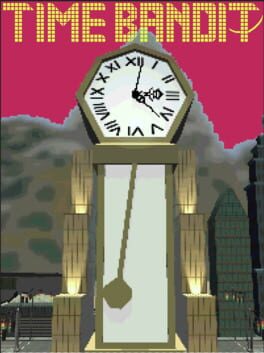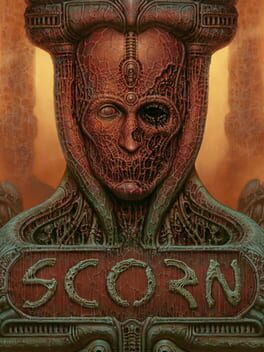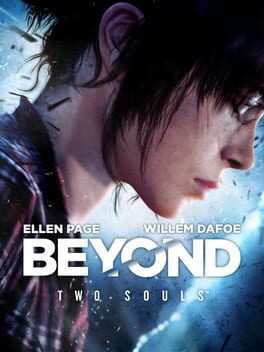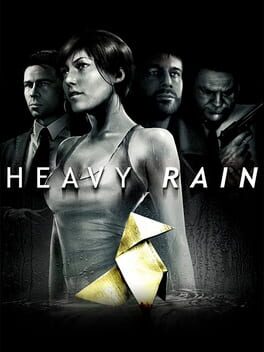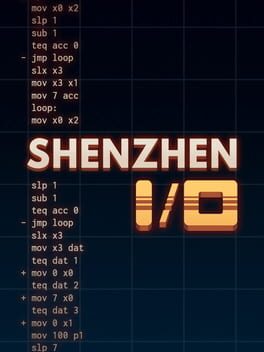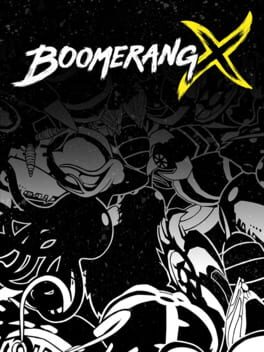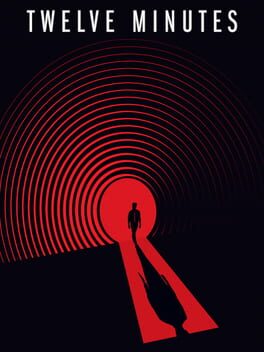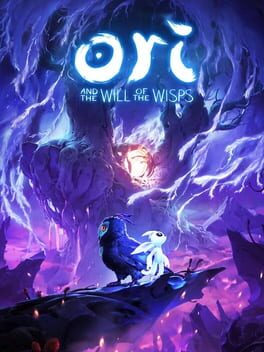cherryfunk
BACKER
So many great ideas here! The real-time mechanics are some of the most interesting recontextualisations of the mode of play I've seen, and the few cutscenes that are here are all very fun. I do think the dialogue can get a little overbearing at times – but maybe that's because I'm already the perfect communist.
2022
An excellent beginning (I liked the Myst style puzzles and atmosphere!) and ending (really strong finale) let down by a godawful middle. The introduction of combat wasn’t particularly welcome – especially because it’s too stressful for me in a horror game – but it was worsened by me missing a weapon in the mid game which forced me to backtrack a few hours to make the game playable.
This review contains spoilers
Endless Summer: Complete the Epilogue (21.2% of players)
After playing through the game, I was expecting the completion rate to be much lower. The writing never pushed me to continue with the story, with inexplicable events happening - both externally and internally - to the interesting characters of the van der Linde gang. It's hard to get invested in the story when great characters will get killed off without warning or fanfare, and Dutch's personality (or everyone's opinion of Dutch) can judderingly shift partway through.
Western Stranger: Complete 10 Stranger mission strands (11.3% of players)
This was probably the biggest mistake I made playing the game. Whilst the mainline story missions can be repetitive and obnoxiously long, they're still capable of bombast or experimentalism. The side quests much less so. Most of them rely on Arthur bumping in to exaggerated personalities, and the sense of humour falls flat and strips away the cohesiveness of the world. Funny side content can work: Yakuza handles them deftly, but Kiryu is a much better comedic foil than Arthur Morgan, who mostly comes off as uninterested and incurious in whatever other people are up to.
Redemption: Complete 'Red Dead Redemption' (24.4% of players)
I enjoyed the conclusion to Arthur's story (much more than the superfluous epilogue). Rockstar somehow managed to portray the struggle of the Native American Wapiti tribe somewhat compassionately, avoiding too much orientalism or oversimplification, providing them with agency instead. This, and Arthur's final mission are all well done. The natural world Rockstar creates is graphically and stylistically beautiful, even if what you get to do within it is largely tiresome.
Global achievement stats taken from Steam as of 2022-09-24
After playing through the game, I was expecting the completion rate to be much lower. The writing never pushed me to continue with the story, with inexplicable events happening - both externally and internally - to the interesting characters of the van der Linde gang. It's hard to get invested in the story when great characters will get killed off without warning or fanfare, and Dutch's personality (or everyone's opinion of Dutch) can judderingly shift partway through.
Western Stranger: Complete 10 Stranger mission strands (11.3% of players)
This was probably the biggest mistake I made playing the game. Whilst the mainline story missions can be repetitive and obnoxiously long, they're still capable of bombast or experimentalism. The side quests much less so. Most of them rely on Arthur bumping in to exaggerated personalities, and the sense of humour falls flat and strips away the cohesiveness of the world. Funny side content can work: Yakuza handles them deftly, but Kiryu is a much better comedic foil than Arthur Morgan, who mostly comes off as uninterested and incurious in whatever other people are up to.
Redemption: Complete 'Red Dead Redemption' (24.4% of players)
I enjoyed the conclusion to Arthur's story (much more than the superfluous epilogue). Rockstar somehow managed to portray the struggle of the Native American Wapiti tribe somewhat compassionately, avoiding too much orientalism or oversimplification, providing them with agency instead. This, and Arthur's final mission are all well done. The natural world Rockstar creates is graphically and stylistically beautiful, even if what you get to do within it is largely tiresome.
Global achievement stats taken from Steam as of 2022-09-24
2013
I remember hearing on a podcast once that this game is mostly bad apart from one good section in the middle. I played the whole game in anticipation of that ‘good bit,’ even though I didn’t know what it involved exactly. Became increasingly confused as the timeline started filling out. I still don’t know what part was meant to stand out as good.
2010
2016
Perhaps it's just due to where I am in my coding career, or perhaps it says more about the kinds of puzzles SHENZHEN I/O throws at you, but this is the first Zachtronics game I haven't dropped after a few hours.
As the problems got harder I started to supress the natural programmer's instinct to prematurely optimise all my code, a path which often ended with wrestling multiple annoying edge cases thanks to the limited instruction set, and instead tried brute forcing the logic by slapping double the chips onto the board. Pleasingly, the game also pushed back on this approach, introducing a meta-layer of trying to get all the wiring to fit next to each other in a limited space, whilst also requiring additional redundant subroutines unconditionally passing data around so that no process gets blocked. Zachtronics games always load on constraints so that problems are non-trivial and often a little fiddly, but only in SHENZHEN I/O have I really enjoyed rubbing up against the limits and finding my own style of working within them without feeling too gross about the compromises. Maybe I can take what I've learnt and beat some of their other games.
Although, maybe it's not worth beating their games. SHENZHEN's ending snuck up on me at what felt like the crescendo of the game's understandably minimal plot. You're left with a false choice that you'd never take in real life, but accepting it is the only way to access the bonus campaign. Maybe I'll leave my principles behind and see what those extra levels are like in a few weeks when I hit a lull in my day job.
Great solitaire entry. Made me think I'd finally 'got' solitaire, but a few rounds of klondike righted that idea.
As the problems got harder I started to supress the natural programmer's instinct to prematurely optimise all my code, a path which often ended with wrestling multiple annoying edge cases thanks to the limited instruction set, and instead tried brute forcing the logic by slapping double the chips onto the board. Pleasingly, the game also pushed back on this approach, introducing a meta-layer of trying to get all the wiring to fit next to each other in a limited space, whilst also requiring additional redundant subroutines unconditionally passing data around so that no process gets blocked. Zachtronics games always load on constraints so that problems are non-trivial and often a little fiddly, but only in SHENZHEN I/O have I really enjoyed rubbing up against the limits and finding my own style of working within them without feeling too gross about the compromises. Maybe I can take what I've learnt and beat some of their other games.
Although, maybe it's not worth beating their games. SHENZHEN's ending snuck up on me at what felt like the crescendo of the game's understandably minimal plot. You're left with a false choice that you'd never take in real life, but accepting it is the only way to access the bonus campaign. Maybe I'll leave my principles behind and see what those extra levels are like in a few weeks when I hit a lull in my day job.
Great solitaire entry. Made me think I'd finally 'got' solitaire, but a few rounds of klondike righted that idea.
2021
2021
This review contains spoilers
I thought after all the time loop games I've played I'd get a kick out of finessing the loop which others found repetitive. In many other similar games the discoveries you make allow you to optimise and speed up the opening minutes of a new loop and get to the new stuff you want to explore within the time constraints. However, Twelve Minutes instead relies far too much on 'temporal backtracking', where you constantly have to go through sequences you'd thought you were already done with again to check whether a new line of dialogue has opened up that can help you progress (if you're lucky - there are a lot of dead ends here too!) Having to repeat a few fiddly actions in order to prime for a specific sequence just so you can try a vague idea you have got pretty tiresome.
Also, they pretentiously liken their game to 'Rear Window' and 'The Shining' in the marketing material (along with just straight up using the iconic carpet from the latter - nice and subtle) but the twist is just a ripoff of Oldboy albeit significantly less fun.
Also, they pretentiously liken their game to 'Rear Window' and 'The Shining' in the marketing material (along with just straight up using the iconic carpet from the latter - nice and subtle) but the twist is just a ripoff of Oldboy albeit significantly less fun.
Feels REALLY good to play until you get caught on some geometry which just won't quite let you hop over it, which feels REALLY bad to play. Docking half a star for how emotionally manipulative it is with the characters it doesn't have any interest in actually developing, even if they are all very cute.
